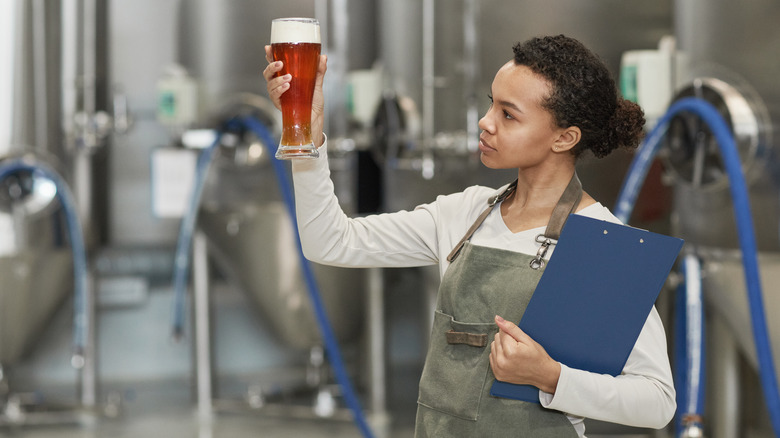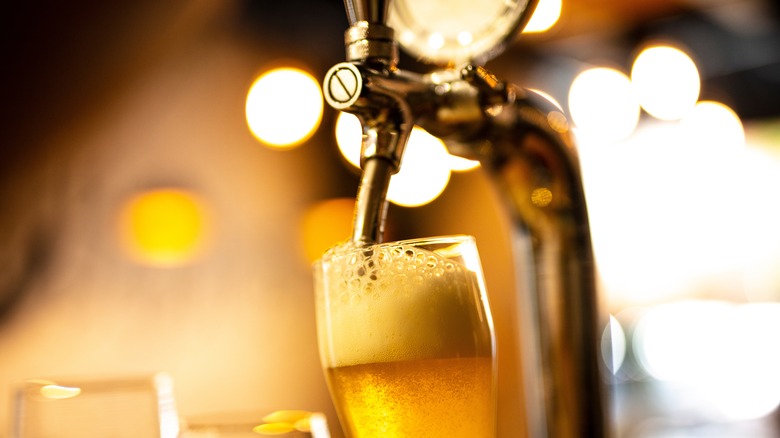How Mary Lisle Became America's Unofficial First Brewster
Beer is one of America's favorite adult beverages, yet when most people think about brewers we picture men making batches of beer. That mental image may be common place, but it isn't historically accurate. Throughout the world when it came to making ale or small batches of beer in the home, women were the ones making it, since it was deemed another part of their domestic duties, as noted in Beer and Brewing.
Prior to beer making its way to the American colonies, female brewers were commonplace in England — where they were known as brewsters or alewives — up until the Industrial Revolution, a time that saw brewing transition into a larger-scale industry that men began to dominate, according to Overcup Press. Brew enthusiasts in the U.S. may know plenty about beer, such as how to pick out the best one for the season or according to their own tastes, but they may not know all about the story behind the popular beverage.
Mary Lisle paved the way for American female brewers
How many beer geeks know that women brewers were not only known as brewsters, but that a female brewer holds a place in America's beer history? Although men like Adolphus Busch, Adolph Coors, Frederick Miller, and Joseph Schlitz are recognized as pioneers in the American beer industry, there was a woman who blazed a brewing trail before them, according to The Die Line. That woman was named Mary Lisle and in 1734, she became America's first unofficial brewster when she inherited her late father's brewhouse in Philadelphia, per Women's History.
As explained by Quaff, Edinburgh Brewhouse was operated by Lisle until 1751. Even though there's historical documentation that proves her place in American beer history, that account wasn't documented until 100 years after she took over her father's brewhouse, according to Molson Coors. Thanks to Lisle — and other alewives who may be part of America's undocumented beer history — we can sample unique brews from breweries in every state in our union and women brewers can continue to leave their mark on the beer industry.

